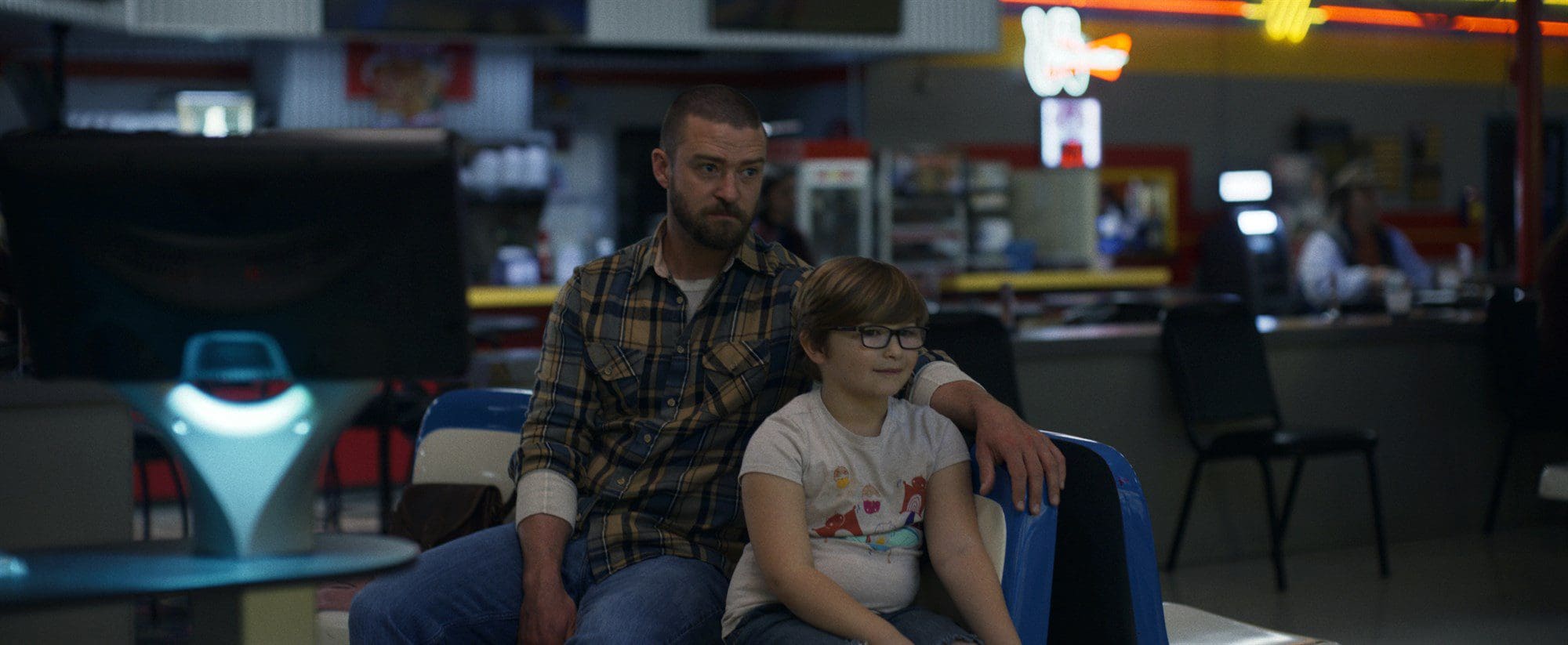
Written by Sam Niles
Palmer is a story of its fresh out of prison title character (Justin Timberlake), forced into a situation where he has to take care of his young neighbor, Sam (Ryder Allen). Despite his initial annoyances, he eventually comes to care for the kid.
This is not dissimilar to this writer’s response to the film itself.
The first 20 minutes or so of Palmer are tedious. Even five minutes in, the soundtrack’s use of acoustic guitar to emphasize that it takes place in a small, southern town was tiresome, and the beats the script repeatedly hit weren’t any better. June Squibb does the best with her dialogue, as Palmer’s Grandmother Vivian, but Justin Timberlake initially just seemed to grimace as he went through his lines.
Even the relationship with Sam doesn’t immediately boost the film out of its tedium. One of their first scenes has Sam in Palmer’s room, with the latter minding his own business as Sam tries to talk about his dolls. As Palmer tries to ignore him, drinking a beer, he says “f***” under his breath, and as he’s about to leave, Palmer makes a snide comment about how boys don’t play with dolls. The scene is…not good. Palmer’s previously mentioned “naughty word” in particular felt like it was written for the sole reason of reinforcing his grimace. It’s a little moment, but given the scenes that preceded it, it almost has one ready to write the film off as a well-intentioned mess.
But as it progresses, so do the stakes. What starts as an ordinary morning for the trio ends in devastation as Palmer finds his Grandmother has died in her sleep.
If you’re wondering, this is indeed when the first 20 minutes or so are over.
The moment may not necessarily reinvent the dramatic wheel, but it’s here where the film escalates from generic to, at the very least, something else. It hits, and it hits hard. Timberlake’s grimace is gone, and in its place is an expression of pure shock, devastation and horror as tears stream down his otherwise frozen face.
As the film progresses, the familiarity that once felt generic feels interwoven into the drama. Expected elements like how a small southern town would treat a little boy’s interest in “girly” things, or the eventual return of Sam’s Mom, haunt the film. Regarding the former, we get glimpses of the misogynist and homophobic bullying that Sam goes through, but we know something else is coming, something worse than we’ve seen, something that will test the man Palmer is and the type of paternal figure he can be for Sam. Regarding the latter, we know that his Mom will return as she always does and take Sam back.
The film treats both of these elements like ticking time bombs, and our anticipation of them inspires us to mournfully look at Sam’s happiness with expressing himself and Palmer’s paternal care for the boy with the question: “why can’t it just stay like this?” The conflict of Sam’s own self with the surrounding culture ultimately inspires Palmer to ask this question himself. His earlier status quo-endorsing “only girls play with dolls” attitude evolves when Sam wants to dress up as a princess for Halloween, where he now expresses a fearful, status quo-submitting “there’s nothing wrong with boys dressing up, but people will hurt you for doing that” viewpoint.
Palmer eventually lets Sam buy the dress and takes him trick-or-treating. But the more Palmer embraces Sam for who he is, the stronger his own internal conflicts become, and when the southern-bigotry bomb finally goes off, the conflict shifts from whether or not Palmer can accept Sam for who he is, to a question of what can (and should) he do to protect him.
Palmer thinks he has it in him to protect Sam. This lone wolf thinks he can just threaten and punch his way through parenthood, to protect his cub, and that it’s this toughness that shows he’ll do whatever he has to. But it’s not toughness and punching that will get Palmer through parenthood. He may be an ex-convict, but it’s that mindset that made him a convict to begin with.
Instead, it’s about embracing his own humility, about learning when to turn the other cheek, that will help him be a proper father to Sam. He can’t change the world, but he can help Sam grow up in it.
Similarly, Palmer, the film, may not change the world or inspire you to go out and be a philanthropist or start a charity. But if you embrace its formula (not begrudgingly accept, embrace), you could find yourself embracing this powerful story of redemption, fatherhood, and a boy accepting himself.
Even if that doesn’t change the world, that has to mean something.

